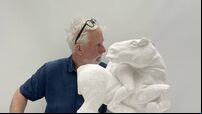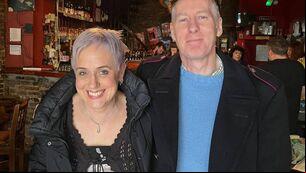Cork man launches book about the band that changed course of Irish music

FULLY illustrated with band photos, record covers, 400 musical arrangements and original handwritten scores, Ceoltóirí Chualann: The Band That Changed The Course Of Irish Music is a stunning tome.

Ceoltóirí Chualann: The Band That Changed The Course Of Irish Music, by Peadar Ó Riada, is available in all good book stores now.







 App?
App?


